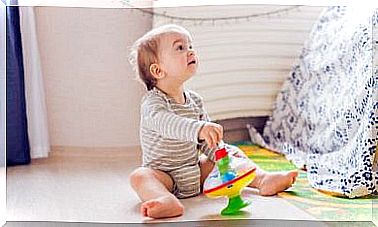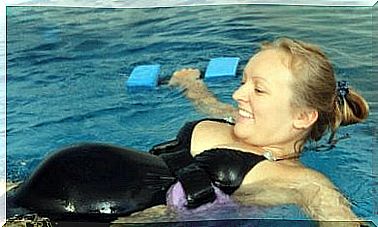The Benefits Of Diving For Children
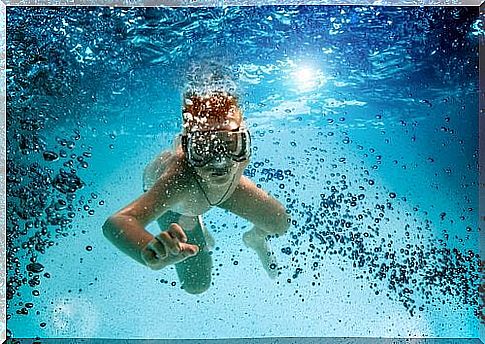
Diving is becoming increasingly popular with children, and this is not particularly surprising as it is an activity that promotes many qualities and abilities. It is also something that children really love
The underwater world is very exciting for both children and adults. Most children like the beach and the sea, so it is a real adventure for them to also be able to discover what is under the sea surface.
Another benefit of diving for children is that it strengthens their self-knowledge. They also learn about and can begin to appreciate the importance of the sea. This in turn makes them more environmentally conscious.
The best age to start
Experts disagree on this. Diving for children is a safe activity, but one should be aware of the risks involved.
It is not only the children who have to be careful but also the adults. Therefore, toddlers should not dive.
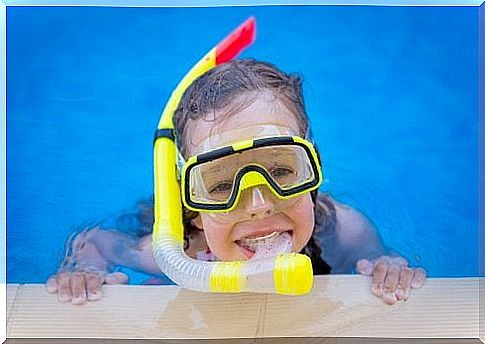
The child must be able to analyze risks and this requires a certain awareness and maturity. It is also important that the child has some self-control.
Underwater situations can arise that can cause the child to panic, and this can lead to him or her having a bad experience.
Children should preferably start diving at the earliest around the age of 8-12, however, this is only a recommendation, not a fixed rule.
It also depends on the child’s temperament. Some ripen early while others take a little longer.
Around the world, diving is usually allowed for children from the age of 10. In some countries, such as Spain, there are slightly stricter restrictions.
In Spain, diving is regulated by age and the rules differ between different provinces. This is something that may be worth thinking about if you are going on a diving trip to Spain.
Benefits of diving for children
There are many benefits to diving for children. It can have a very positive impact on their physical, mental, intellectual and social development.
Some of the main benefits are the following:
- Diving tones the muscles and allows children to develop their psychomotor abilities.
- Improves lung capacity and blood circulation.
- Make the children more mature.
- Strengthens self-esteem.
- Encourages children to take responsibility.
- Stimulates imagination and creativity.
- Strengthens solidarity and friendship.
One of the most important benefits is that diving is a great way for children to deal with stress.
Children do not carry the same burdens as adults, but they can also be stressed. An activity like this helps them channel their anxiety in a positive way.
Aspects to consider
Diving involves certain risks; they can be managed, but at the same time one should not underestimate them.
It is important to know some of the guidelines, such as:
- Diving instructors must be qualified, not only for the dive itself but also for working with children.
- Children under the age of 8 do not have sufficiently developed lungs. Experts therefore recommend that they do not dive.
- Children under the age of 12 are at greater risk of ear pain. The instructor should teach the children techniques to avoid earlobes.
- The smaller the child, the greater the risk of hypothermia.
- The child should be at least 150 cm and weigh at least 45 kg to start diving.
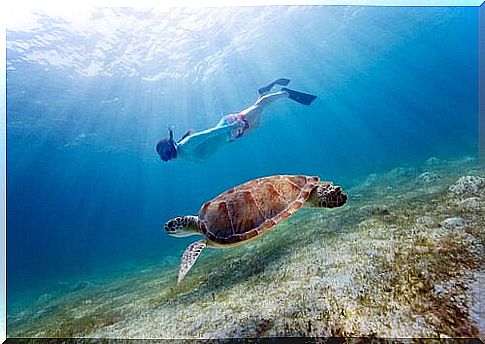
- Before the child starts diving, he or she must already be able to swim well. It is also important that the child learns to handle the equipment.
- The first lesson is performed in a pool. Then you can move on to open water.
- It is not recommended to dive for more than 25 minutes.
- Every child must dive with an experienced adult.
- The child must learn to swim upwards faster than the air bubbles.
- After a dive, you must not be at an altitude of more than 500 meters within 12 hours.
- The child must also be able to climb into the boat himself and bring his own equipment.

